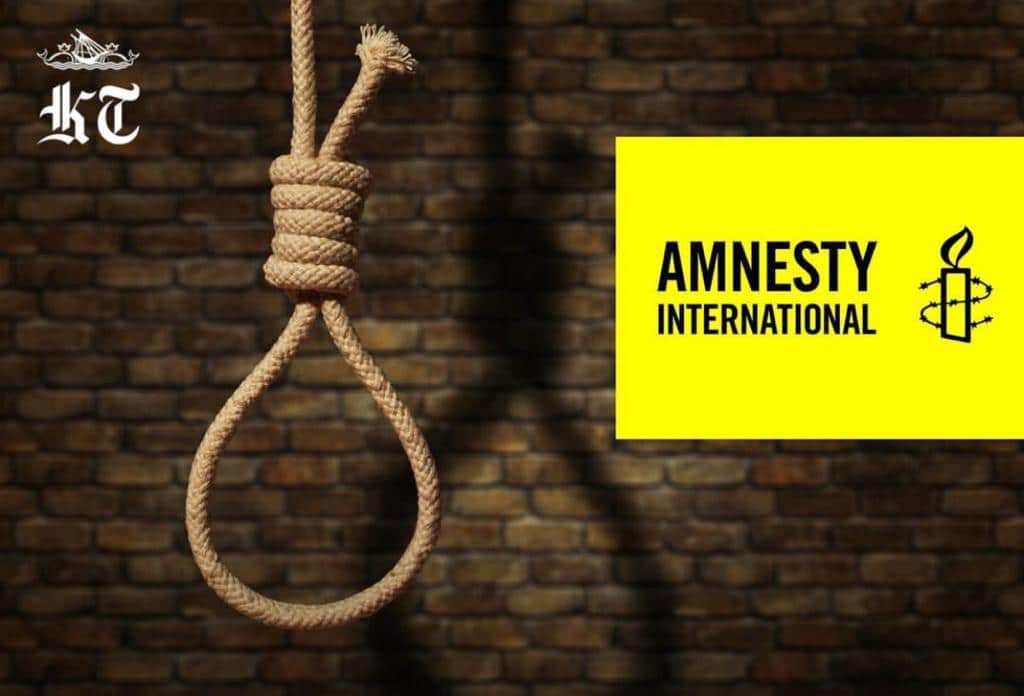GENEVA: The United Nations on Friday denounced the recent executions carried out by Singapore and Kuwait and called for the nations to impose a moratorium on carrying out the death penalty. Singapore on Friday hanged a 45-year-old citizen for drug trafficking, the city-state’s first execution of a woman in nearly 20 years, officials said. Kuwait put to death five people on Thursday, including a man convicted of involvement in a 2015 suicide bombing by the Islamic State group that killed 26 people, the public prosecution said. The multiple executions in the state — relatively rare compared to neighboring Saudi Arabia — were the first since seven people were put to death in November last year ending a five-year moratorium.
“We deplore the multiple executions carried out this week in Kuwait and Singapore and oppose the death penalty under all circumstances,” UN Human Rights Office spokesman Seif Magango said in a statement. “We urge Kuwait and Singapore to immediately establish a moratorium on executions and join the more than 170 states that have so far abolished or introduced a moratorium on the death penalty.” On Thursday, Amnesty International said the move was “another example of the disturbing rise in use of the death penalty” in Kuwait. “When it is used against non-violent offenders such as the Sri Lankan killed today, it is incompatible with international law,” Amnesty’s Kuwait researcher, Devin Kenney, told AFP.
The Sri Lankan was put to death on drug charges. Although Kuwait has executed dozens of people since it introduced the death penalty in the mid-1960s, the punishment is relatively rare. Most of those condemned have been convicted of murder or drug trafficking. In April 2013, Kuwaiti authorities hanged three men convicted of murder. Two months later, two Egyptians, convicted of kidnap and murder, were executed. In 2017, the state carried out a mass execution of seven prisoners, including a ruling family member. The execution in Singapore was carried out despite appeals from rights groups, who argue capital punishment has no proven deterrent effect on crime.
“The capital sentence of death imposed on Saridewi Binte Djamani was carried out on 28 July 2023,” the Central Narcotics Bureau said in a statement. She was convicted of trafficking “not less than 30.72 grams” of heroin, more than twice the volume that merits the death penalty in Singapore. Djamani is the first woman to be executed in the city-state since 2004, when Yen May Woen was hanged for drug trafficking, the Singapore Prison Service told AFP in an email. Yen was a 36-year-old hairdresser, according to media reports. Djamani on Friday became the 15th prisoner sent to the gallows since the government resumed executions in March 2022 after a two-year pause during the COVID-19 pandemic.
A local man, Mohd Aziz bin Hussain, 57, was hanged on Wednesday for trafficking about 50 grams of heroin. Local rights group Transformative Justice Collective said Friday it had confirmed that another drug convict on death row has been scheduled for execution on Aug 3. It identified the convict as a Singaporean man who worked as a delivery driver before his arrest in 2016. He was convicted in 2019 of trafficking around 50 grams of heroin. “This week has cast a harsh and tragic spotlight on the complete lack of death penalty reform in Singapore,” said Amnesty International’s death penalty expert Chiara Sangiorgio. “As most of the world turns its back on this cruel punishment, Singapore’s government continues down the path of executing people for drug-related crimes, violating international human rights law and standards.” – AFP











